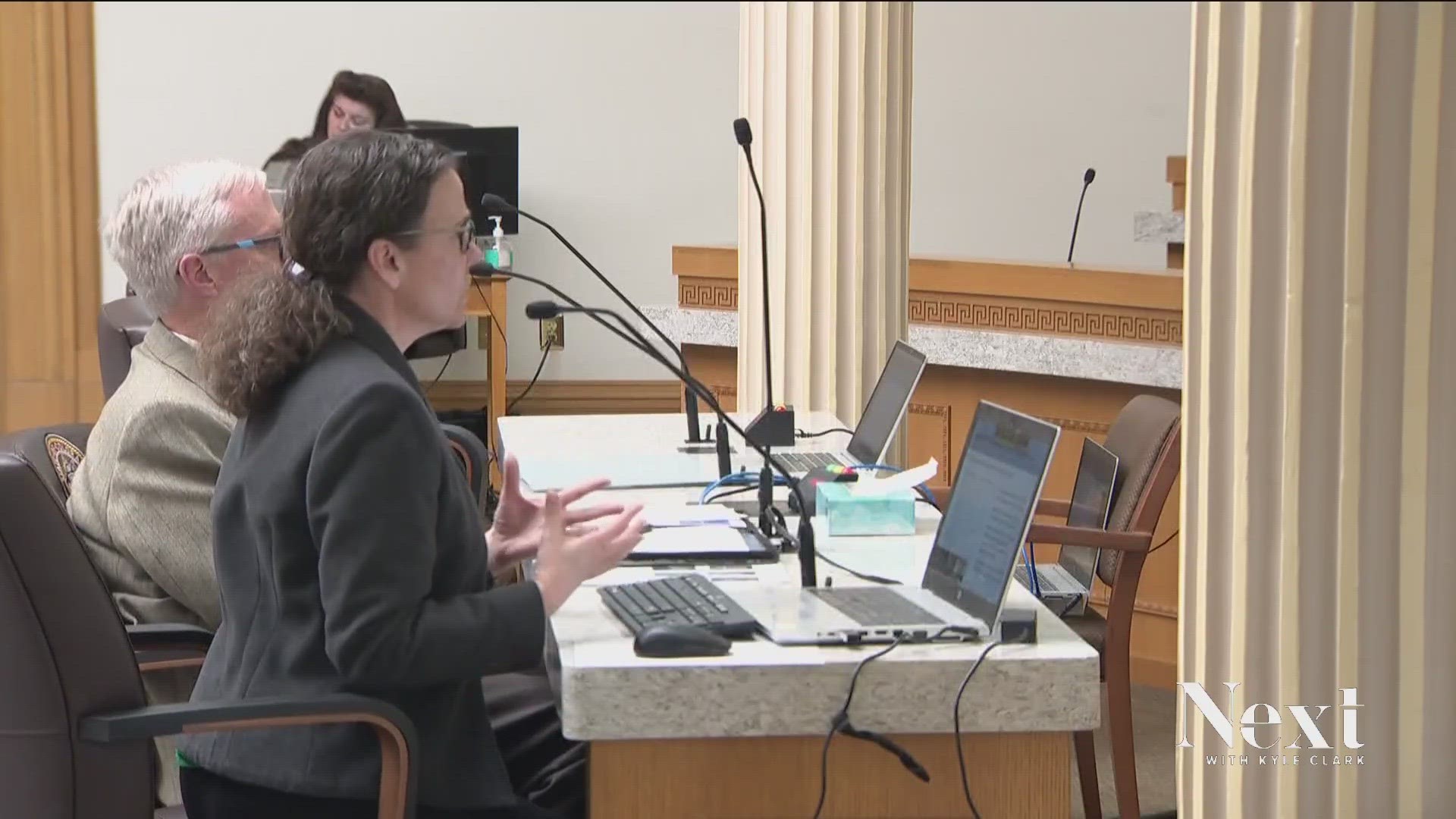DENVER — Colorado state lawmakers have started the process to see if they can lower utility rates in the future.
The special Joint Select Committee on Rising Utility Rates met for the first time on Tuesday.
The six lawmakers who sit on the committee learned information that was a primer of 17 stories covered by Next with Kyle Clark since late January.
The committee heard testimony from four agencies:
- Chief economist from the Public Utilities Commission (PUC)
- Deputy director of the Office of the Utility Consumer Advocate
- Energy Outreach Colorado
- Colorado Energy Office
The testimony next Tuesday will include Xcel Energy and other utility companies.
Committee members asked the PUC if it ever said no to a gas rate increase, and wanted to know what is included in a base rate.
Our story from Feb. 14 detailed what makes up a base rate, and explained that the PUC does say no, line-by-line.
State Sen. Barbara Kirkmeyer, R-Brighton, questioned why an Xcel bill cannot be predictable and constant like a phone bill.
“How do we make the underlying gas commodity cost itself more stable? Hoo. That’s a big question,” PUC chief economist Erin O’Neill said. “The wholesale price of natural gas is not regulated. It was deregulated back in the 1980s by the federal government. So there is a limit to the amount of control that we have over the underlying commodity cost. I think if you think about the telephone analogy, those costs are mostly driven by infrastructure. That’s a relatively known cost.”
Another question from Kirkmeyer has been asked by several Next viewers.
Why doesn’t Xcel buy natural gas when it is cheap and store it so that it does not have to buy it when it is expensive?
“Is there something that the PUC needs to be able to allow utilities to essentially contract for more gas when it’s at a low price?” Kirkmeyer asked.
“Gas is somewhat storable, unlike electricity, which is really hard to store, but we don’t have huge storage reserves in the state of Colorado," O’Neill said. "Some utilities have more than others, but there is a limit to what a company can purchase and put in storage. So while gas prices are really low right now, and we’re, sort of, coming off the high demand season and coming into the spring, there isn’t enough storage to, sort of, put it in the ground now and wait and use it next winter. There’s not physically that much storage.”
There used to be a large natural gas storage facility in Leyden, which no longer exists and is now a housing development.
When the deputy director from the Office of the Utility Consumer Advocate testified, he revealed that more than 600 complaints have been received since our coverage in January.
The most common complaints include:
- Winter heating bills
- Utility company record profits
- Rooftop solar meter interconnections
- Getting through to customer service
- Waiting lists for bill assistance
The Office of the Utility Consumer Advocate is the public defender for ratepayers.
The budget of that office is $2 million, which is funded through a line item on energy bills.
The committee also honed in on the $2 million that Xcel got approved into its last gas rate increase. On Feb. 1, Next revealed that Xcel asked for $2.2 million in reimbursement for outside legal expenses that helped the company get the gas rate increase approved. The PUC approved $2 million.
A question from Kirkmeyer revealed that utility ratepayers cover the cost of everything from the utility’s operations to the PUC itself to the public defender of ratepayers.
“Xcel pays for their own in-house [attorneys], they pay for their attorneys they bring on in addition, and then essentially they pay for you,” Kirkmeyer asked the Office of the Utility Consumer Advocate.
“The ratepayers pay for the fixed utility fund. This is the operations of our office, as well as the Public Utilities Commission. They pay for the company’s in-house counsel. They pay for the company’s in-house employees. They pay for the company’s outside counsel. They pay for the company’s outside experts,” said Joseph Pereira, deputy director of the Office of the Utility Consumer Advocate. “Xcel has good in-house lawyers. If that wasn’t sufficient, they could, then, hire more in-house lawyers.”
The next committee meeting is March 14 at 2 p.m. The utility companies will testify and answer questions from committee members.
SUGGESTED VIDEOS: Full Episodes of Next with Kyle Clark

